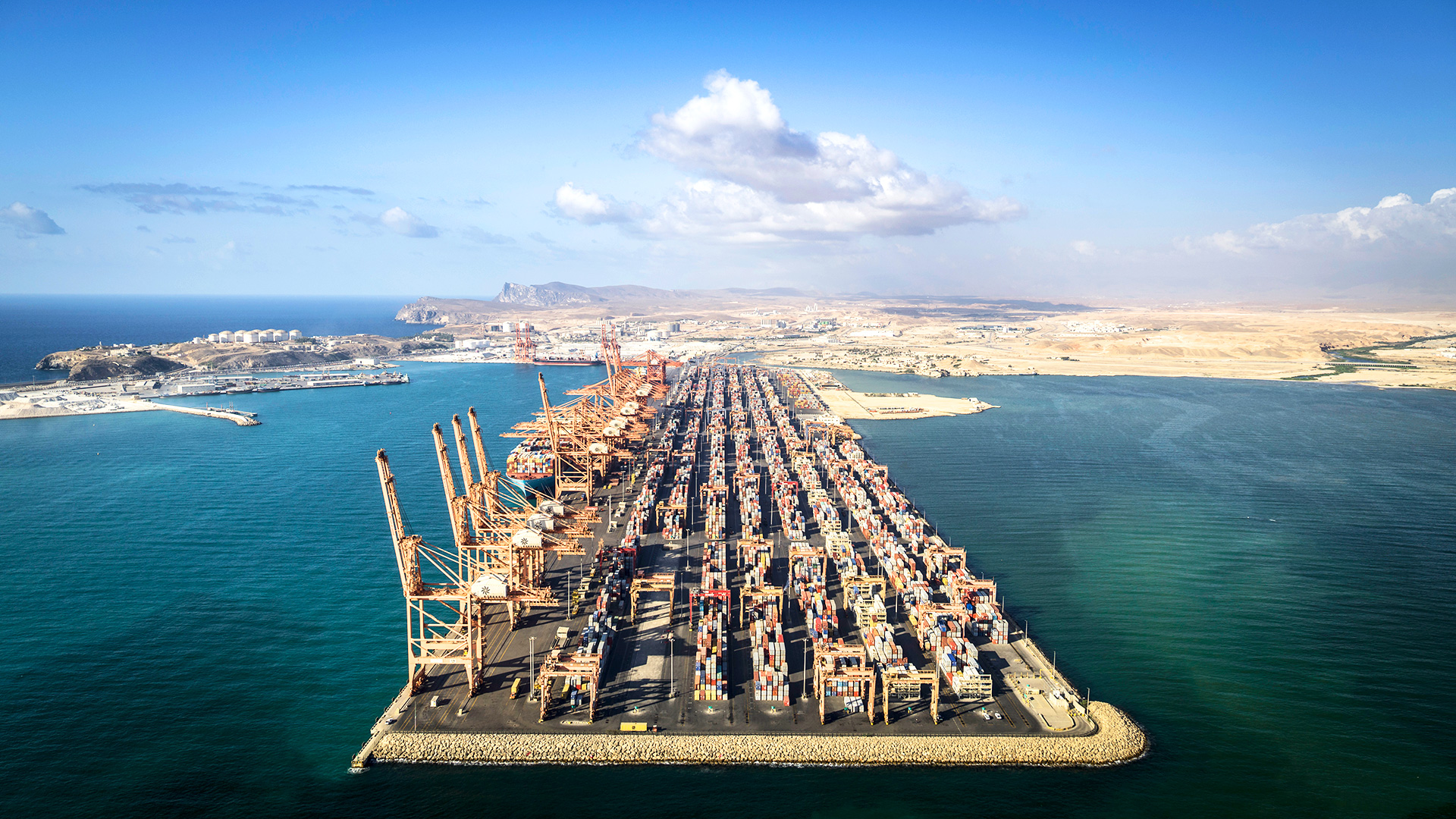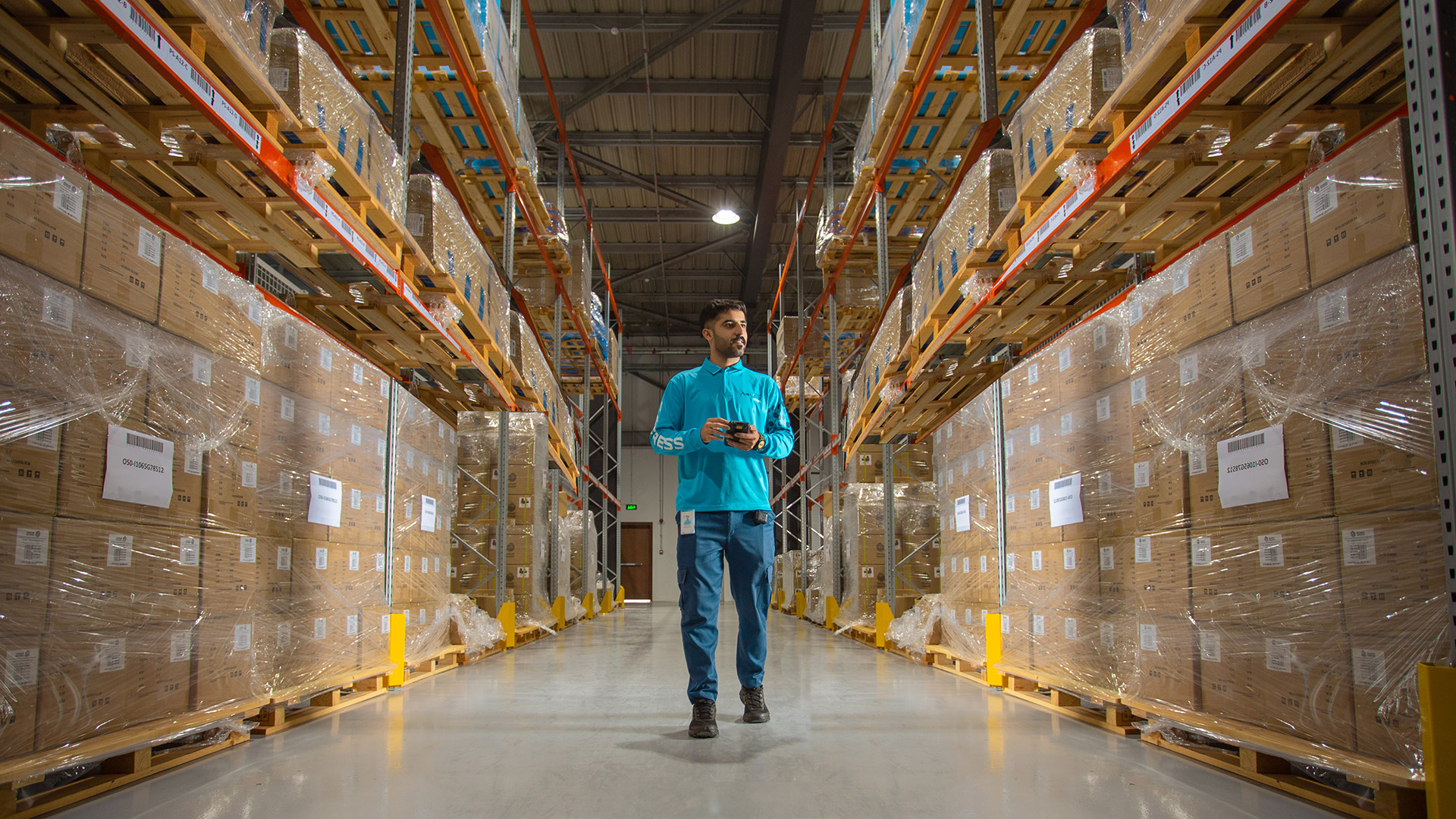
How Oman is beginning to find the difficult solutions to decarbonization
Not content with decarbonizing its own operations, the Sultanate’s leading logistics company, Asyad, is spearheading sustainability across the entire sector.
The logistics industry is one of the most urgent to decarbonize, but equally one of the most challenging. Including warehousing and ports, freight transportation accounts for 11% of greenhouse gas emissions, and electrifying large trucks, planes, and ships – which carry heavy loads over long distances – is proving more difficult than cars.
But logistics encompasses much more than heavy transport, leaving plenty of space to reduce emissions elsewhere. This is an ethos embraced by Asyad, Oman’s global integrated logistics service provider, which is not only decarbonizing its own operations, but championing sustainability across the whole sector.
Prioritizing sustainability
“ESG is at the heart of our business decisions and operations” says Essam Al Sheibany, Group Vice President of Sustainability, Asyad. Pointing to the detailed roadmap which spans every corner of its business, Al Sheibany cites Asyad’s uncommonly joined-up perspective as key to making progress on sustainability.
Alongside pioneering sustainable finance – which sees dedicated funds go to environmental performance goals – Asyad is already deploying energy optimization strategies in its many ports and freezones. It is also developing a solar plant to power its drydock, which will house new ships fueled entirely by liquefied natural gas (LNG), substantially reducing emissions compared to oil-based fuels.
Moreover, the Group signed an agreement with Brazilian mining company, Vale, to install rotor sails on the world’s largest ore carrier, a Valemax vessel owned by Asyad, to harness wind propulsion technology and drive energy efficiency gains while significantly reducing emissions.

This dedication to sustainability has earned Asyad the Environmental Ship Index Incentive – awarded to ports exceeding International Maritime Organization (IMO) environmental standards.
But what really makes them stand out is its wide-ranging remit. “Our positioning is unique,” says Al Sheibany. “We are diversified across shipping lines, ports, and free zones to public transport, last-mile delivery, and warehousing.”
And it’s this positioning, which spans the entire logistics lifecycle, that gives Asyad the scope to forge the partnerships needed to decarbonize.
Working together
“The key element for decarbonizing the world is collaboration,” says Al Sheibany. And Asyad is using its singular position to collaborate as widely as possible.
A standout example is the company’s work supporting the Omani government’s ambitions to become a global hydrogen hub, producing 1 million tons per annum by 2030. Hydrogen is considered crucial for decarbonizing heavy transport and industry, and this project will reduce reliance on less sustainable fuels.

Asyad is also mobilizing its free zones, ports, and drydock to build the enabling infrastructure for an end-to-end hydrogen supply chain, turning its ports into major global hubs for the gas.
It is also working to convert hydrogen into green shipping fuels based on ammonia and methanol. And with the International Energy Agency (IEA) projecting that ammonia will account for 45% of shipping fuel by 2050, the company is leveraging its role as a global trade enabler to push for green corridors – shipping lanes available exclusively to vessels using zero-carbon fuels.
But achieving these goals will require more than logistics might, which is why Asyad is adamant in supporting the new technologies, start-ups and SMEs that hold the key to transformative change in decarbonization.
Amplifying innovation
“There is a risk for first movers,” says Al Sheibany. “If the energy transition is going to work, companies like us need to reduce the risk for SMEs and technology providers. So that is what we’re doing.”
The company has already engaged with Omani startup Wakud to convert the Sultanate’s public buses to biofuels, while another SME is installing sensors on Asyad’s ships to monitor emissions. But the company’s partnership with Wakud’s sister business 44.01, to deploy carbon capture and storage, is the partnership that Al Sheibany finds particularly remarkable.

44.01 won the 2022 Earthshot prize for its carbon mineralization technology. “Once the CO2 has been mineralized it is turned into rock forever, meaning it can never escape back into the atmosphere,” says Talal Hasan, founder and CEO of 44.01.
For Asyad, these partnerships go further than simply being another means for reducing operational emissions. Radical partnerships are vital in scaling ambitions for change. “The support of a company like Asyad is invaluable for a start-up like ours,” says Hasan.
A long road
Logistics is on one of the most challenging paths to net-zero, and Asyad, in rapidly decarbonizing its own operations, recognizes the urgency of addressing this challenge.
But in its support for green fuels, green corridors, and startups like 44.01, the company is accelerating the push for sustainability across the wider industry – not just in Oman, but across the world.

